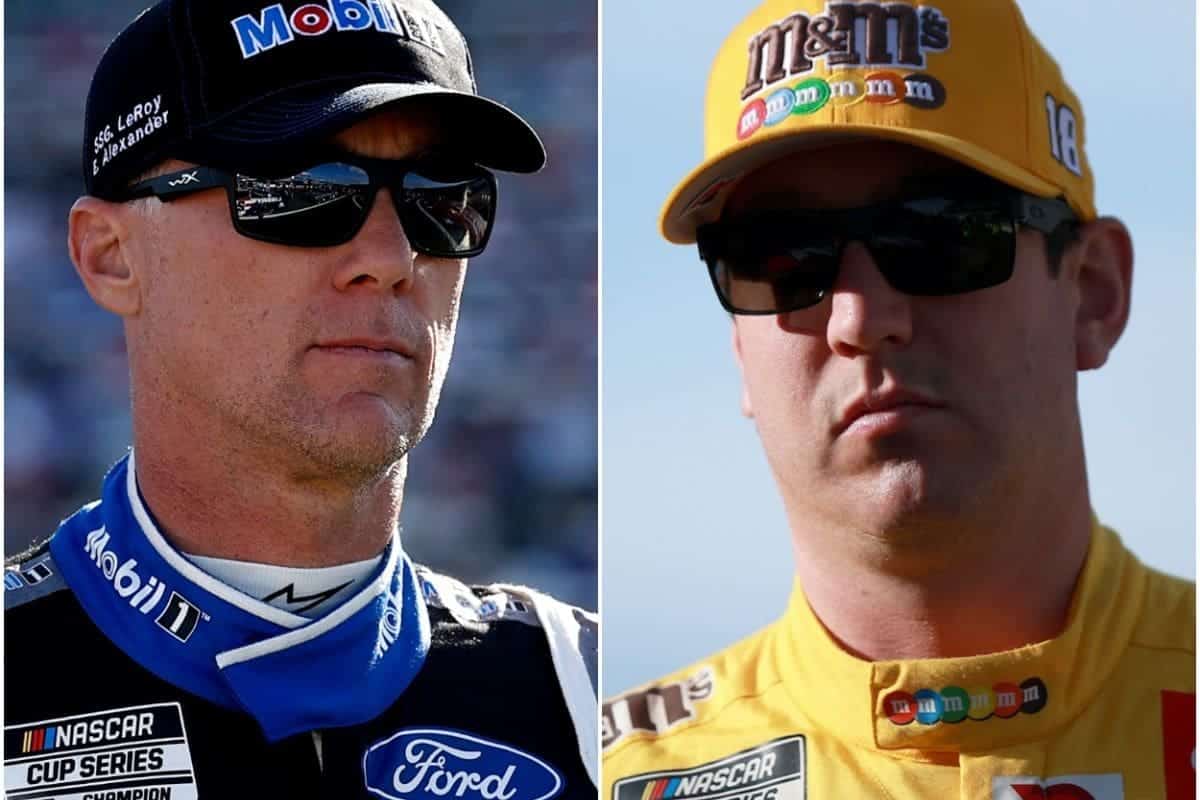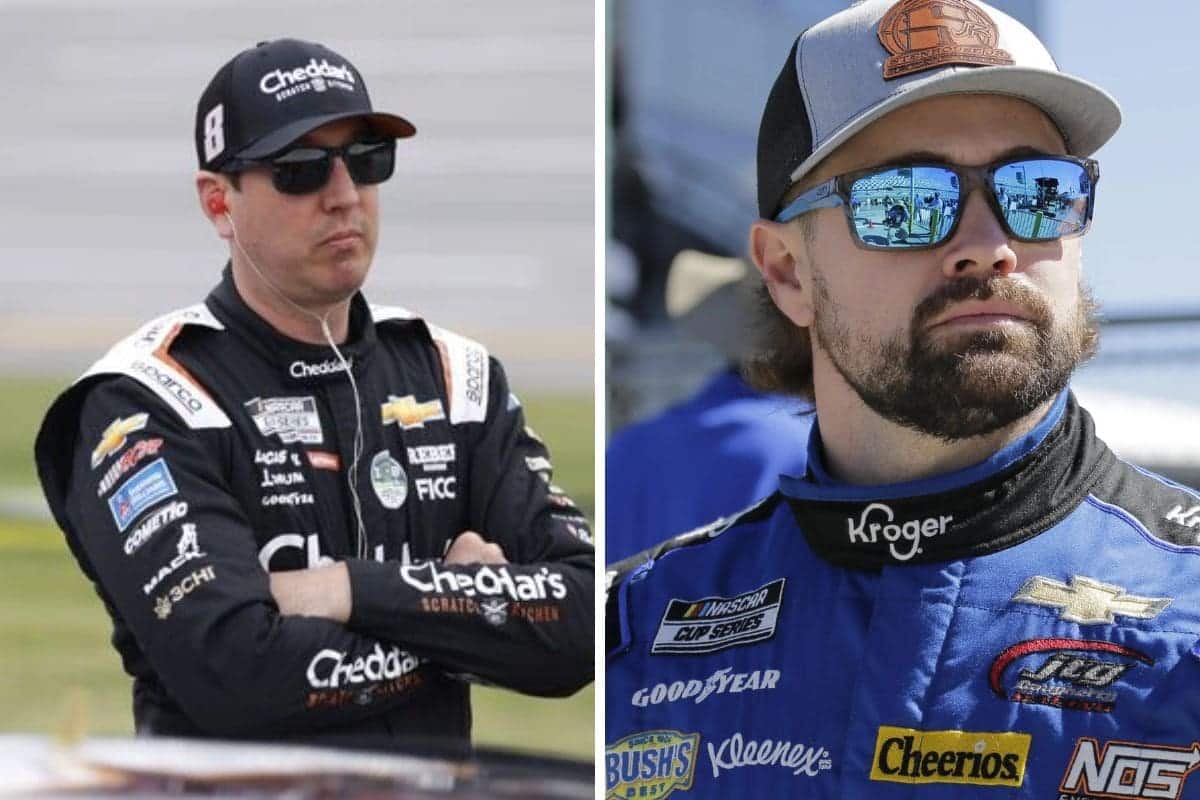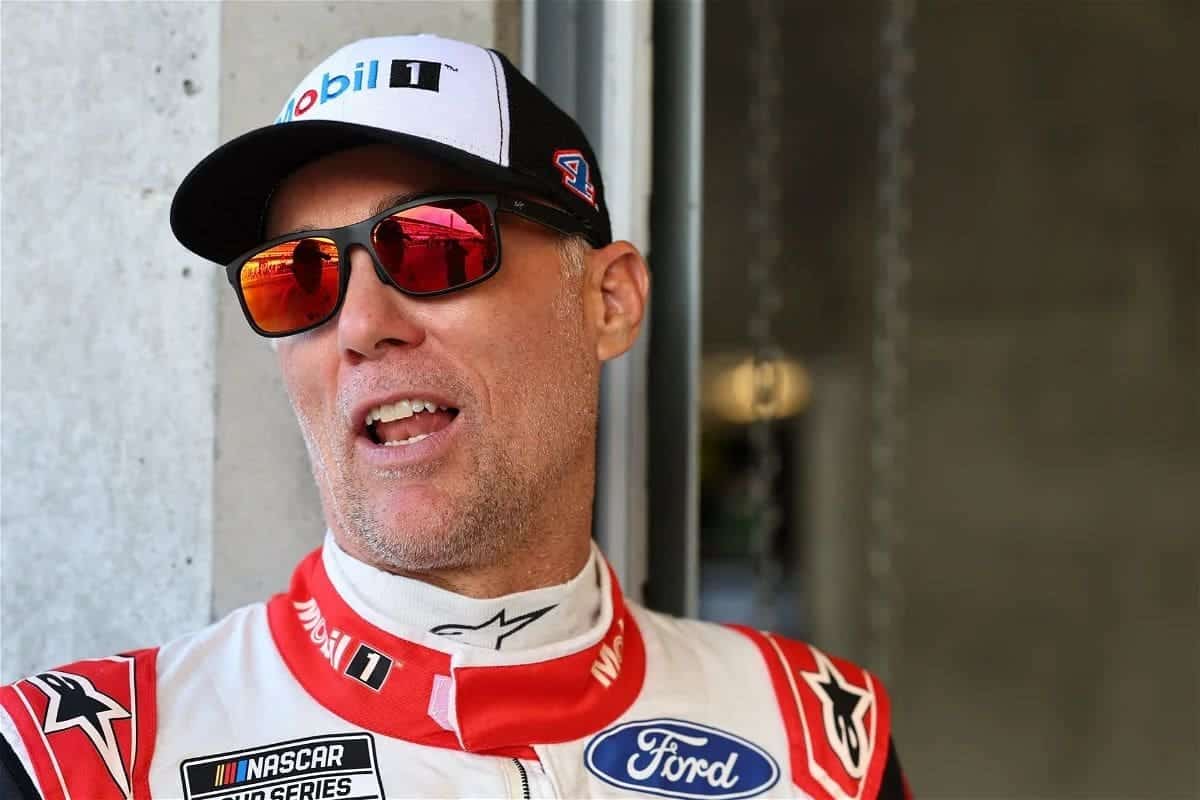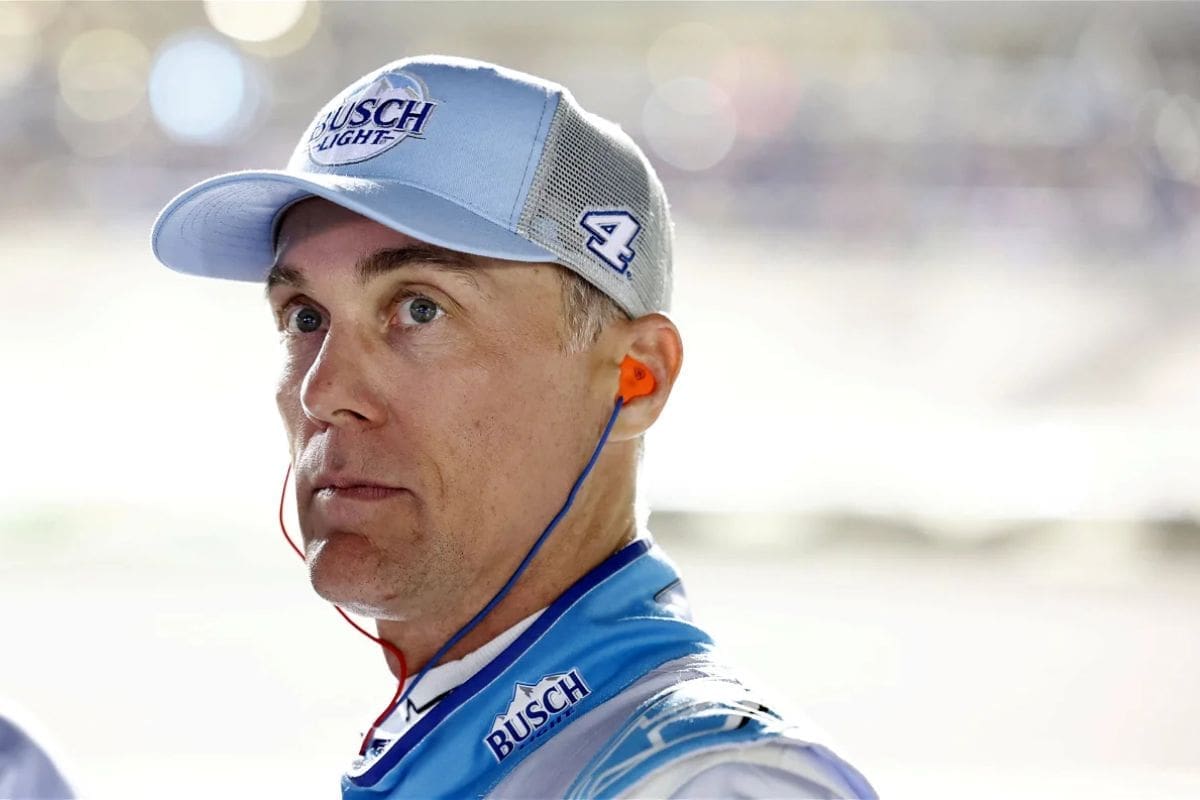Kevin Harvick Unimpressed With Kyle Busch: Kevin Harvick‘s measured critique of Kyle Busch‘s fiery outburst towards Ricky Stenhouse Jr. opens a window into the psychological stresses that define the NASCAR. Harvick’s comments suggest that Busch’s visible frustration might be symptomatic of deeper, unaddressed tensions that impact performance and behavior on the track. This incident not only spotlights Busch’s volatile temperament but also raises broader questions about emotional resilience and conflict management among top-tier drivers.
Key Highlights
- Kevin Harvick questions the root cause of Kyle Busch’s anger towards Ricky Stenhouse Jr.
- Harvick suggests Busch’s outburst may stem from internal frustrations.
- He emphasizes the mental and emotional complexities faced by NASCAR drivers.
- Harvick raises awareness about underlying tensions within the NASCAR community.
- He calls for addressing these issues to maintain sportsmanship and integrity.
Drama Unfolds: Kyle Busch vs. Ricky Stenhouse Jr. Showdown
The intense confrontation between Kyle Busch and Ricky Stenhouse Jr. has ignited a firestorm of debate within the NASCAR community. The altercation, which escalated dramatically from a incident on the track to physical aggression off it, has left fans and analysts dissecting every moment.
The sequence began with Busch’s assertive move, pushing Stenhouse Jr. against the wall, a tactic that many deem reckless but not uncharacteristic of Busch’s aggressive driving style. This on-track clash set the stage for an even more heated off-track encounter.
Stenhouse Jr., visibly incensed, waited at Busch’s hauler, leading to an escalation that resulted in Stenhouse Jr. throwing a punch. This moment of intense physical confrontation not only shocked spectators but also sparked a broader discussion about sportsmanship and aggression in NASCAR.
From a broader perspective, such incidents highlight the thin line between competitive spirit and unsportsmanlike conduct. While NASCAR is no stranger to emotions and rivalries, the Busch-Stenhouse Jr. showdown has raised questions about the limits of on-track aggression and the appropriateness of off-track retaliation.
The incident emphasizes the need for clear boundaries and regulations to make sure that competitive fervor does not spiral into physical altercations. Moreover, this altercation has polarized the NASCAR community, with fans and experts taking different positions.
Some argue that Busch’s actions were a necessary assertion of dominance, while others condemn the physicality that ensued.
Kevin Harvick’s Take on the Feud
Kevin Harvick, in his podcast ‘Harvick’s Happy Hour,’ openly questioned the root of Kyle Busch’s anger, suggesting deeper, internal frustrations might be at play. Harvick, known for his open and often insightful commentary, expressed bewilderment at the intensity of Busch’s reaction toward Ricky Stenhouse Jr. He emphasized that, despite reviewing the incident multiple times, he couldn’t identify any on-track actions severe enough to justify Busch’s vehement outburst.
“I honestly have no idea what Kyle Busch is mad at.”
“I think that we finally have seen the trigger that pushed Kyle over the edge with the, with the performance of what they’ve been doing on the racetrack and the things that have been happening.” -Harvick
Harvick’s analysis explored the possibility that Busch’s reaction was not solely about the track incident but might stem from broader issues. He hinted at the likelihood that Busch’s internal struggles could be influencing his behavior, suggesting that perhaps Busch is wrestling with challenges or disappointments beyond what fans and fellow drivers observed that day. In fact, Jeff Burton shared the same sentiments as Kevin Harvick, reinforcing the shared perspective among experienced drivers.
“Whatever you think about him [Kyle Busch], he’s also a human being. The guy loves to win, and he hasn’t been able to on a frequent basis. There’s no way that’s not on his mind.” – Burton
NASCAR’s Unconventional Response
In an unquestionably bold move, NASCAR’s social media team fueled the controversy by posting a tweet that appeared to support Ricky Stenhouse Jr.’s actions in the altercation with Kyle Busch. The tweet featured an image of the brawl and carried the caption, ‘Ricky felt like something needed to be done. So he did something.’ This reaction from NASCAR’s official account has sparked significant discussion among fans and analysts, raising questions about the organization’s stance on driver conduct and conflict resolution.
Ricky felt like something needed to be done.
So he did something. pic.twitter.com/8X0YK1aheR
— NASCAR (@NASCAR) May 20, 2024
Sports governing bodies maintain a neutral or disciplinary tone when addressing conflicts among participants. However, NASCAR’s tweet appears to stray from this norm, taking a side in a manner that some might interpret as condoning aggressive behavior. Some argue that it reflects a shift toward embracing the more emotional aspects of the sport, potentially increasing fan engagement by highlighting the human element. Others, however, are concerned that it undermines the principles of sportsmanship and fair competition.
From an analytical perspective, NASCAR’s decision to publicly support Stenhouse Jr. can be seen as a calculated risk. While it may increase fan engagement and media coverage, it also runs the risk of setting a precedent that could encourage further on-track confrontations.
NASCAR’s Penalties and Perception
Issuing penalties and suspensions, NASCAR’s recent actions have sparked widespread debate about fairness and consistency in enforcing rules. The recent incident involving Kyle Busch and Ricky Stenhouse Jr. has put NASCAR’s disciplinary measures under intense scrutiny. While Busch’s aggressive actions went unpunished, Stenhouse Jr. faced a $75,000 fine, and his team members, Keith Matthews and Clint Myrick, received suspensions.
In the aftermath of the race, Stenhouse Sr., who intervened to protect his son, was suspended indefinitely, despite being on the receiving end of Busch’s blows. This decision appears particularly controversial, suggesting a potential bias or inconsistency in NASCAR’s enforcement policy. The suspension of Stenhouse Sr., who was ostensibly acting defensively, complicates the narrative and challenges the perceived equity of NASCAR’s disciplinary actions.
Furthermore, the suspension of JTG – Daugherty Racing crew members for their involvement, while Busch remains unscathed, exacerbates concerns regarding the selective application of penalties. This inconsistency could undermine the integrity of NASCAR’s regulations and the confidence of its stakeholders.
The precedent set by these recent actions will likely influence future disciplinary measures and the overall credibility of NASCAR’s regulatory framework. The need for a consistent and equitable approach to penalties is paramount to maintaining the sport’s integrity and trust among its participants.
Fairness and Repercussions
The recent altercation between Ricky Stenhouse Jr. and Kyle Busch at North Wilkesboro oval track highlights an ongoing issue within NASCAR’s disciplinary framework. Stenhouse Jr.’s premeditated confrontation with Busch at the hauler was met with a predictable punishment, yet the sanctioning body’s simultaneous promotion of the incident on social media sends mixed signals. This duality in NASCAR’s approach raises critical questions about the consistency and fairness of its disciplinary actions.
- Mixed Messaging: By promoting the altercation, NASCAR appears to condone the very behavior it penalizes, undermining the credibility of its disciplinary system.
- Selective Punishment: The focus on Stenhouse Jr. bearing the brunt of the repercussions alone, despite the shared responsibility in the altercation, suggests an inconsistent application of rules.
- Impact on Integrity: Such inconsistencies can erode trust among drivers and fans, potentially compromising the sport’s integrity and fairness.
These issues are not merely theoretical but have tangible impacts on how stakeholders perceive the sport. When drivers like Daniel Suarez openly question the fairness of the penalties, it reflects broader concerns within the racing community.
News in Brief: Kevin Harvick Unimpressed With Kyle Busch
The incident between Kyle Busch and Ricky Stenhouse Jr., as analyzed through Kevin Harvick’s perspective, emphasizes the mental and emotional challenges inherent in NASCAR.
Harvick’s insights reveal the potential underlying frustrations driving Busch’s behavior, urging a deeper examination of driver motivations.
NASCAR’s response, including penalties, raises questions about fairness and the sport’s regulatory framework.
ALSO READ: Kevin Harvick Defends Josh Berry, Calls Out Stewart’s Costly Blunders




